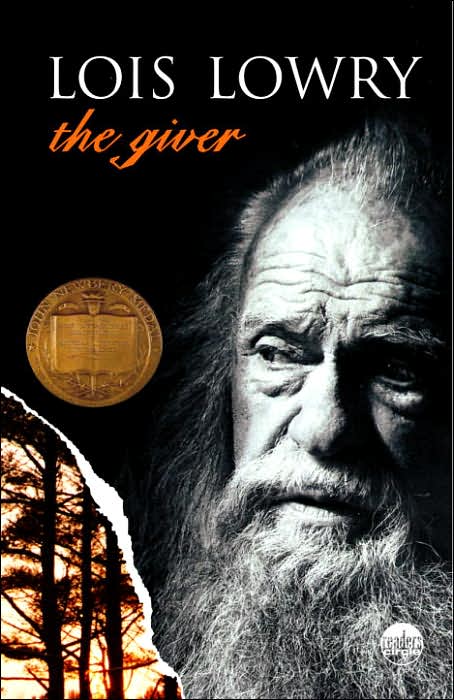Written by: Lois Lowry
Although Gathering Blue was the second book in The Giver trilogy, it did not satisfy my yearning for a book that continued where The Giver left off. I wanted to know what happened to Jonas and Gabe. I only found out on the last few pages of Gathering Blue that Jonas was alive and living in a new community called the Village. Messenger, written by Lois Lowry, is the final book in The Giver trilogy and ties the characters and stories from both The Giver and Gathering Blue together.
Messenger focuses on the story of Matty, the same young boy who had supported Kira when nobody else would in Gathering Blue. Kira’s father, Seer, who has been given his name due to his ability to see in spite of his blindness, has taken in Matty as his own. In the six years that have passed since leaving his own community and coming to the village with Seer, Matty has become much more refined and educated. In fact, he holds a very special job in the Village—he delivers important messages through the forest.
What I found interesting about Messenger is that the Village did not seem to be utopic or dystopic. Although it was obvious the book was set in the future, some aspects of the setting seemed closer to reality and more believable. For example, those who ended up in the Village were those who had escaped from another society that had been unaccepting. Many had physical ailments. For example, the Mentor in the Village had a large birthmark along the side of his face and a hunched back. All members of the Village were kind to each other and willing to help one another. Of course, the book did include plenty of fantasy. The forest came alive and characters had special magical gifts.
As hoped for, we find out what happens to Jonas. Jonas reappears in this story as Leader. The story briefly recounts his arrival and his importance to the Village. “In the Museum’s glass cases there were shoes and canes and bicycles and a wheeled chair. But somehow the small red-painted sled had become a symbol of courage and hope. Leader was young but he represented those things. He had never tried to go back, never wanted to. This was his home now, these his people. As he did every afternoon, he stood at the window and watched. His eyes were a pale, piercing blue.”
After finishing the trilogy, I suppose the question becomes—should Lois Lowry ever have continued The Giver? I find this a difficult question to answer. In a way, I am glad I got to read two more science fiction books by Lois Lowry. On the other hand, however, The Giver is a masterpiece that stands alone. When I first completed The Giver, I wanted to know how things ended for Jonas. I had so many questions I wanted answered. I am sure that anyone who has ever read the book has countless questions as well. It took Lowry seven years before she decided to write Gathering Blue and to finish the trilogy. I believe that both books were beautifully written, but none could replace, or come even close to the power of The Giver. I just did not feel the same emotional connection with the characters in Gathering Blue and Messenger as I did with The Giver. I suppose I am mostly disappointed because the story did not end the way I imagined it. I was hoping to not only find out what happened to Jonas and Gabe, but for their life to continue. Although we did learn more about Jonas in Messenger, I feel like again, I am left with many unanswered questions.
The whole point of science fiction, however, is to leave readers with unanswered questions and to make readers think about what could be if the world continues on certain paths. Overall, I think Lowry is an incredible author and I enjoyed reading both Gathering Blue and Messenger. I am glad that I read all three and have closure for at least what happened to Jonas—but there is still much left to figure out.
All three books show the growth of a young child coming to realize that something is wrong with society and change needs to take place. In each story, it is a child that has the special gifts needed to make change. Children are the future and we are counting on them to develop critical thinking skills and to make moralistic decisions that will lead our society in the right direction. Lowry reminds us all of the dangers of what can happen if we take things too far.


